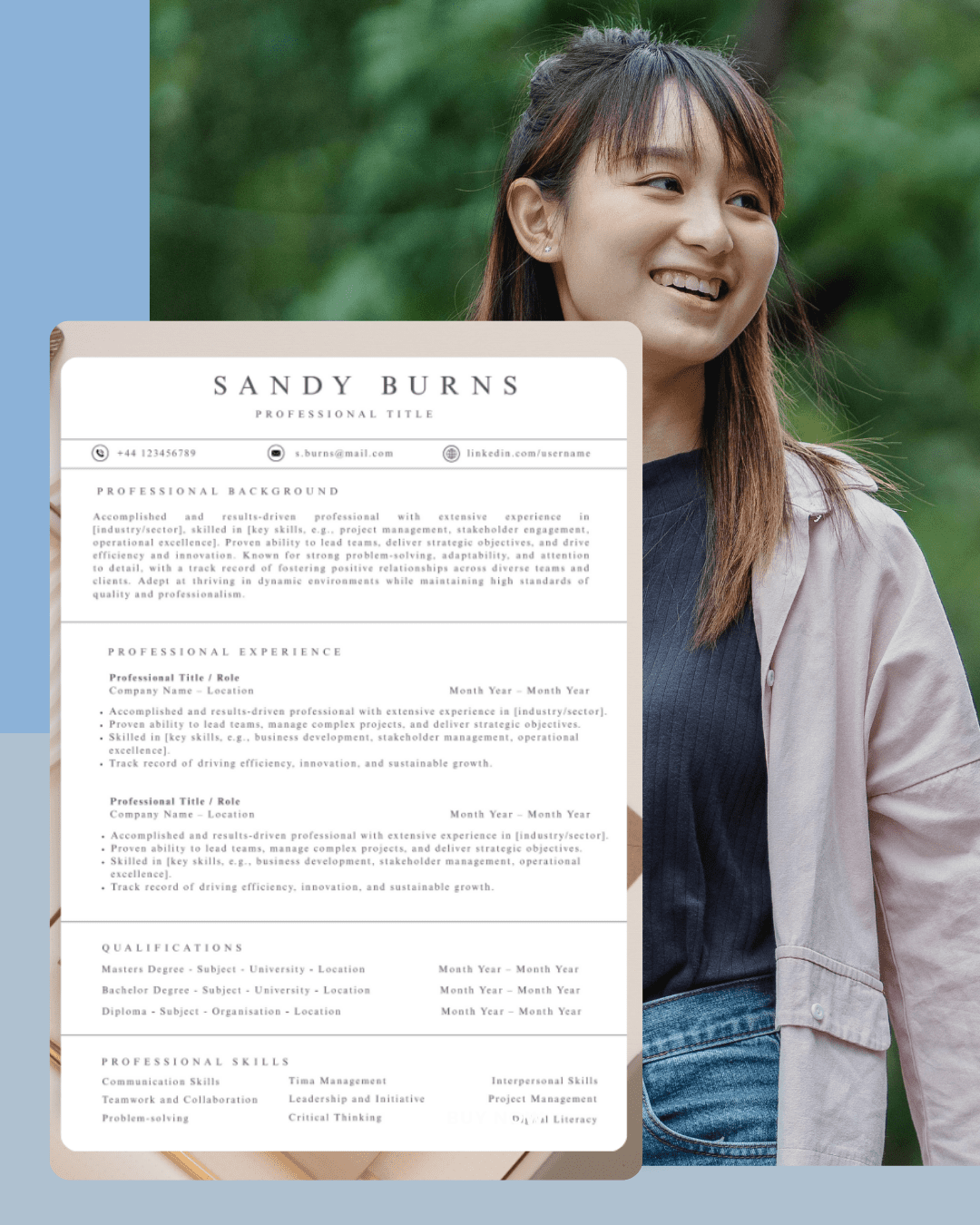Creating a student CV in the UK can feel daunting, especially if you have limited professional experience. Yet, your CV is the first impression you make on employers, placement providers, or graduate recruiters. A well-structured document shows not just what you have done but also your potential. With the right approach, you can craft a CV that highlights your strengths, builds confidence, and secures opportunities. This step-by-step guide will walk you through how to create a CV UK employers value.
1. Understanding the Purpose of a Student CV
A student CV is not simply a list of jobs you have held. Instead, it is a carefully curated document that demonstrates transferable skills, academic achievements, and extracurricular involvement. Recruiters know students may not have extensive work history, so they look for evidence of adaptability, initiative, and commitment. By tailoring your CV to the specific opportunity, you present yourself as a strong candidate even without years of experience. Remember: clarity, structure, and relevance matter more than volume.
2. Structuring Your Student CV Effectively
Employers in the UK expect a clear and professional CV layout. Start with your name and contact details, followed by a strong personal statement tailored to your goals. Education should appear prominently, especially if you are still studying or recently graduated. Work experience, volunteering, and internships come next, with achievements written in bullet points rather than vague descriptions. Finally, add skills, certifications, and languages that enhance your value to employers.
3. Crafting a Personal Statement That Stands Out
Your personal statement sits at the top of the CV and sets the tone for the rest. It should briefly summarise who you are, what you can offer, and what you are seeking. Avoid clichés like “hard-working” or “team player” unless supported by examples. Instead, focus on specifics — for example, your area of study, your career aspirations, or your achievements. Keep it short (3–4 sentences), persuasive, and tailored to the role you are applying for.
4. Highlighting Education and Achievements
As a student, your education is one of your strongest assets. Include details of your degree, relevant modules, and predicted or achieved grades. If you have completed coursework or dissertations relevant to the role, mention them to show subject expertise. Employers also value academic awards, scholarships, or society involvement. Demonstrating academic commitment builds credibility and helps your CV stand out.
5. Showcasing Work Experience and Volunteering
Even part-time roles or volunteering can demonstrate valuable skills. Employers look for evidence of reliability, customer service, organisation, and problem-solving. Use bullet points to explain your responsibilities and achievements, focusing on transferable skills. For example, working in retail shows teamwork and communication, while volunteering demonstrates dedication and initiative. Always frame experiences in terms of what you achieved and learned.
6. Skills, Certifications, and Extras in Your Student CV
The final section of your CV should round out your profile with skills and extras. Include IT proficiency, languages, or certifications like Microsoft Office, LinkedIn Learning, or sector-specific training. Soft skills such as leadership, communication, and adaptability can be reinforced through examples. If you are part of university societies, sports teams, or student unions, highlight them here. These show employers you can balance responsibilities and bring added value.
FAQ: UK Student CV
Q1: How long should a student CV be in the UK?
A student CV should usually be one page, but up to two pages is acceptable if you have significant experience. Employers value concise, well-structured CVs over long documents.
Q2: Do I need work experience to make my CV strong?
Not necessarily. Academic achievements, volunteering, internships, and extracurricular activities can all demonstrate transferable skills.
Q3: Should I include references?
You do not need to list references on your CV. Instead, you can state “references available on request.”
Q4: Can I use the same CV for every application?
It is better to tailor your CV to each opportunity. Employers notice when you adapt your CV to the role, making it more likely you will be shortlisted.
Q5: Is it worth using a CV template?
Yes. Professional CV templates save time, ensure clarity, and help your application stand out in competitive markets.
Start With a Professional Student CV Template Today
Your CV is your ticket to interviews, internships, and graduate roles — don’t leave it to chance. At Lawlio, we provide expertly designed student CV templates tailored for the UK market. Our templates are modern, professional, and easy to customise, helping you focus on your content rather than formatting headaches. Whether you are applying for placements, part-time jobs, or graduate roles, a strong CV layout makes all the difference.
Take control of your career journey today
explore Lawlio’s CV templates now.
Of course, career success doesn’t stop with landing your first job. If you are a law student or aspiring solicitor, you will also need to prepare for professional exams such as the SQE1. Our sister platform, LexDex Solutions, provides cutting-edge SQE1 training materials, scenario-based questions, and legal templates that support your journey to qualification. While Lawlio helps you get noticed by employers, LexDex ensures you are equipped for the next step in your legal career.


